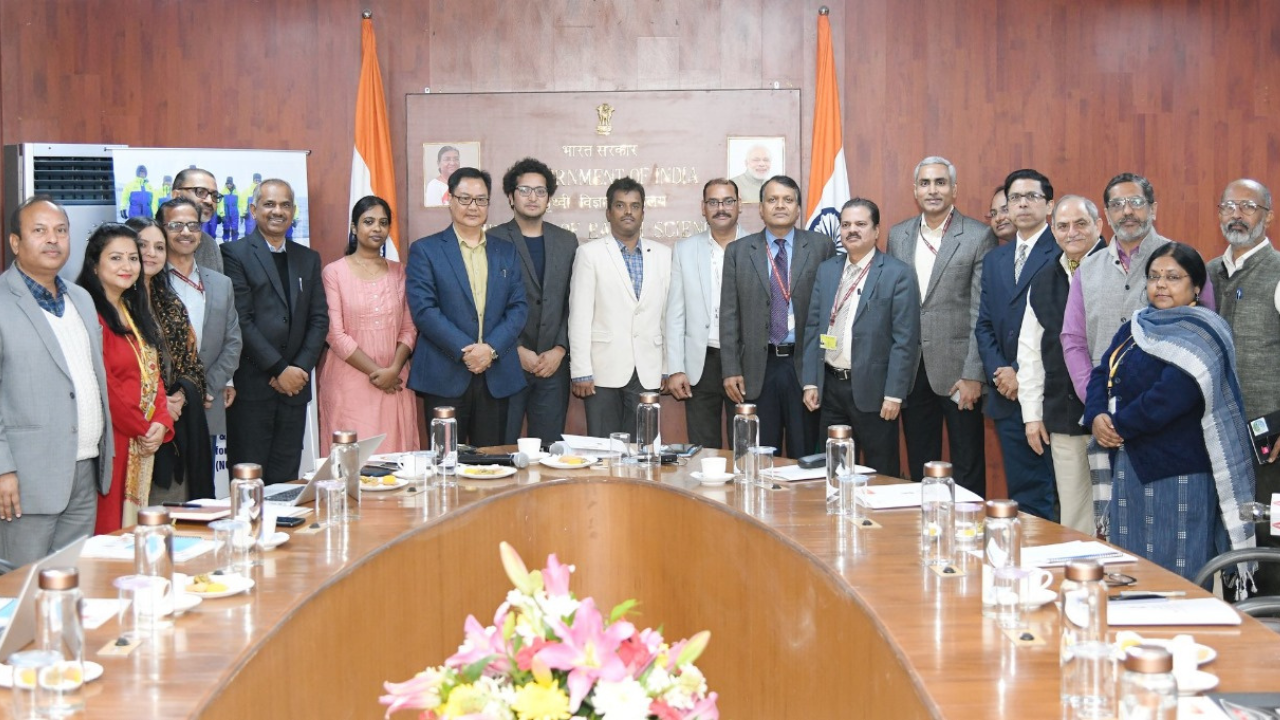BENGALURU: Raman Research Institute (RRI) is set to embark on India’s inaugural winter expedition to the Arctic, marking a significant milestone in the country’s scientific exploration.
The expedition, spearheaded by the National Centre for Polar and Ocean Research (NCPOR), Goa, will witness RRI researchers delve into uncharted territories, focusing on characterising the radio frequency environment in the Svalbard region of the Arctic.
This pioneering survey aims to evaluate the region’s viability for precision astronomy measurements, encompassing areas such as astronomy, climate change, and atmospheric science.
Girish BS, from the Electronics Engineering Group at RRI, has been designated as the leader of the team, which will conduct a comprehensive survey of the radio frequency environment at Svalbard, potentially opening avenues for deploying low-frequency radio telescopes. This marks a historic moment as such characterisation has never been undertaken in this region before.
The team’s month-long scientific expedition, funded by the Ministry of Earth Sciences (MoES), is scheduled from December 19, 2023, to January 15, 2024. The mission aligns with India’s continued presence in the Arctic since the establishment of the Himadri research station in 2008.
Engineers and scientists at RRI have been at the forefront of developing the SARAS (Shaped Antenna measurement of the background RAdio Spectrum) series of experiments. SARAS focuses on studying the faint cosmological signal from hydrogen, known as the 21-cm signal, during the Cosmic Dawn and the Epoch of Reionization.
Girish BS highlighted the challenges faced in studying these cosmic phases due to urbanisation and interference from radio frequency sources. The upcoming Arctic survey is anticipated to provide insights into the radio quietness of the location, crucial for deploying SARAS radio telescopes.
“SARAS has produced significant scientific results in the past from observations carried out in India, including remote regions of Ladakh and backwaters in Western Karnataka. One of the key reasons for its success has been the access to these radio-quiet locations. The Arctic survey will inform us about the radio quietness of the location for deploying the SARAS radio telescope in Ny-Ålesund, Svalbard,” Saurabh Singh, associate professor, RRI and principal investigator of the experiment, said.
RRI director Professor Tarun Souradeep said: “Over 75 years, RRI has served the nation in prescient presence at key global frontiers of science of the time. Delighted that colleagues enthusiastically responded to the call for the first winter Indian expedition to the Arctic to explore the possibility of deploying the home-built SARAS radio telescope, that is globally recognised to be among the most sensitive experiments seeking to detect a very subtle signal of cosmic dawn when first galaxies lit up in the universe.”
The expedition, spearheaded by the National Centre for Polar and Ocean Research (NCPOR), Goa, will witness RRI researchers delve into uncharted territories, focusing on characterising the radio frequency environment in the Svalbard region of the Arctic.
This pioneering survey aims to evaluate the region’s viability for precision astronomy measurements, encompassing areas such as astronomy, climate change, and atmospheric science.
Girish BS, from the Electronics Engineering Group at RRI, has been designated as the leader of the team, which will conduct a comprehensive survey of the radio frequency environment at Svalbard, potentially opening avenues for deploying low-frequency radio telescopes. This marks a historic moment as such characterisation has never been undertaken in this region before.
The team’s month-long scientific expedition, funded by the Ministry of Earth Sciences (MoES), is scheduled from December 19, 2023, to January 15, 2024. The mission aligns with India’s continued presence in the Arctic since the establishment of the Himadri research station in 2008.
Engineers and scientists at RRI have been at the forefront of developing the SARAS (Shaped Antenna measurement of the background RAdio Spectrum) series of experiments. SARAS focuses on studying the faint cosmological signal from hydrogen, known as the 21-cm signal, during the Cosmic Dawn and the Epoch of Reionization.
Girish BS highlighted the challenges faced in studying these cosmic phases due to urbanisation and interference from radio frequency sources. The upcoming Arctic survey is anticipated to provide insights into the radio quietness of the location, crucial for deploying SARAS radio telescopes.
“SARAS has produced significant scientific results in the past from observations carried out in India, including remote regions of Ladakh and backwaters in Western Karnataka. One of the key reasons for its success has been the access to these radio-quiet locations. The Arctic survey will inform us about the radio quietness of the location for deploying the SARAS radio telescope in Ny-Ålesund, Svalbard,” Saurabh Singh, associate professor, RRI and principal investigator of the experiment, said.
RRI director Professor Tarun Souradeep said: “Over 75 years, RRI has served the nation in prescient presence at key global frontiers of science of the time. Delighted that colleagues enthusiastically responded to the call for the first winter Indian expedition to the Arctic to explore the possibility of deploying the home-built SARAS radio telescope, that is globally recognised to be among the most sensitive experiments seeking to detect a very subtle signal of cosmic dawn when first galaxies lit up in the universe.”
Denial of responsibility! Swift Telecast is an automatic aggregator of the all world’s media. In each content, the hyperlink to the primary source is specified. All trademarks belong to their rightful owners, all materials to their authors. If you are the owner of the content and do not want us to publish your materials, please contact us by email – swifttelecast.com. The content will be deleted within 24 hours.


